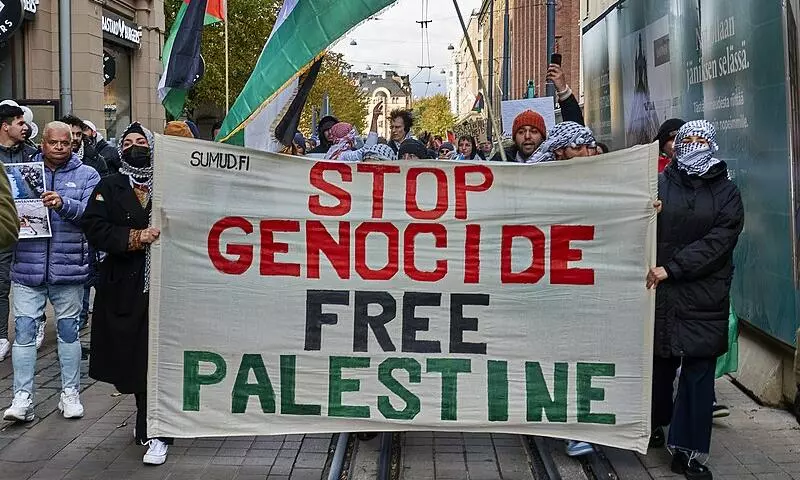
UN flags Israeli policies and actions in Gaza linked to genocide
text_fieldsA United Nations special committee has expressed grave concerns regarding Israeli policies and actions in Gaza, asserting that they align with characteristics typically associated with genocide.
In its annual report, the committee, which was initially formed in 1968 to monitor Israel’s occupation of Palestinian territories, outlined several allegations, including the use of starvation as a weapon of war and the implementation of an apartheid system within the West Bank, encompassing East Jerusalem.
The report comes as the International Court of Justice (ICJ) undertakes an investigation into a claim by South Africa, which contends that Israel's military actions in Gaza constitute genocide.
In January, the ICJ ordered Israel to take immediate preventative measures to avoid any potential acts of genocide, including ensuring humanitarian aid reaches Gaza and preserving evidence related to alleged genocidal actions. Israel, however, has dismissed the ICJ's ruling, with its leaders reaffirming their commitment to international law while also accusing the UN of being biased against the country.
The special committee, comprising representatives from Sri Lanka, Malaysia, and Senegal, said it had requested to visit areas of concern, such as Gaza, the West Bank, the Golan Heights, and Israel itself, but these requests went unanswered, preventing on-the-ground assessment.
Despite this restriction, the committee’s research pointed to potential breaches of international humanitarian and human rights laws in the occupied Palestinian territories. The report indicated that civilians in Gaza have faced mass casualties, with intensified conflict reportedly leading to devastating conditions that affect healthcare, cause physical destruction, and increase risks such as miscarriages and stillbirths due to warfare-induced hardships.
The committee also raised alarms about alleged tactics used by Israel to cut off essential resources, asserting that Israeli policies since the escalation of the conflict have effectively deprived civilians of food, water, and fuel. These actions, the committee argued, appear to serve broader political and military objectives.
As tensions continue, Israel’s relationship with the United Nations has become increasingly strained, particularly with the country recently announcing its intention to cease cooperation with the United Nations Relief and Works Agency for Palestine Refugees (UNRWA) within the next three months. This decision has further complicated the UN’s ability to monitor and report on conditions in the region.






















